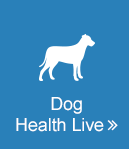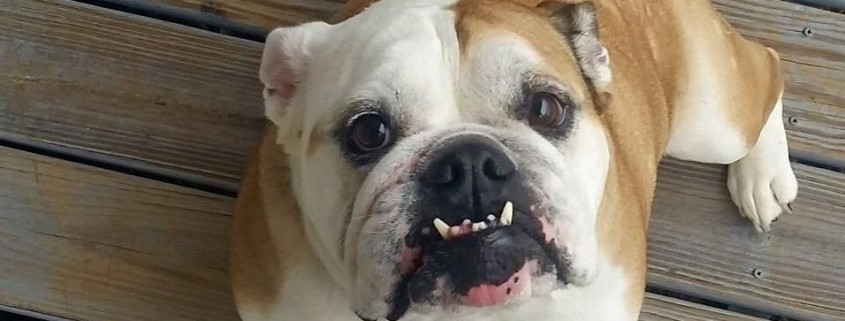Bloat in Dogs
Gastric Volvulus, commonly referred to as “Bloat”, is an emergency situation with a high mortality rate in otherwise healthy dogs. When a dog experiences bloat, two things happen. The dog’s stomach fills with gas and fluid, causing it to distend. The second phase is the actual volvulus where the bloated stomach twists. The initial bloat phase is uncomfortable, but the twist is the dangerous part because not only does it cut off the blood supply to the stomach and intestine, but the stomach is clamped shut so the gas and food cannot pass out of the stomach or come back up as a burp or vomit. The closed off stomach will continue to expand as the food inside ferments and continues to produce gas. If your dog experiences bloat, bring them to the vet immediately because if their stomach has twisted they will need emergency surgery.
Bloat is most common in adult dogs that have large abdomens like Rottweilers, Labradors, Shepherds, St. Bernards or Great Danes due to the shape of their chests and abdomens. Bloat occurs when a dog gulps down its food too quickly and consumes a lot of air while eating. It can also happen from eating too soon before or after exercise, or from gulping down too much water after eating. Pet parents can recognize bloat because their dog will appear uncomfortable and restless, but is unable to vomit or burp. A large distended belly will indicate that the stomach is full of gas and fluid. If you pat on the dog’s belly, it will sound hollow. If the stomach has flipped, producing the dreaded volvulus, the dog will feel much worse. Their heart rate will speed up, but their pulse will be weak and their gums pale. The dog will be weak because the large veins that bring blood from the GI tract back to the heart are restricted and the dog may collapse. The excessive pressure within the abdomen will restrict the lungs and the dog will have difficulty breathing.
It is imperative to get your dog to the veterinarian before the lack of blood supply to internal organs does permanent damage. If the dog is experiencing uncomplicated bloat the vet can usually relieve the pressure with a stomach tube that will allow the dog to vomit up the fluid and gas in its stomach. If the dog’s stomach twists emergency surgery will be in order. The veterinarian needs to untwist the stomach so that the blood supply can return to the organs.
To avoid bloat, be mindful of your dog’s eating habits. Dogs that gulp their food should not receive large meals or large quantities of water all at once. Instead, let them have smaller meals more frequently and small drinks of water more frequently. Large dogs will benefit from eating their food from a raised bowl because they will ingest less air when eating. Make sure your dog is kept quiet after they eat so have time to digest before running and playing.
Studies
A time series model of the occurrence of gastric dilatation-volvulus in a population of dogs.


